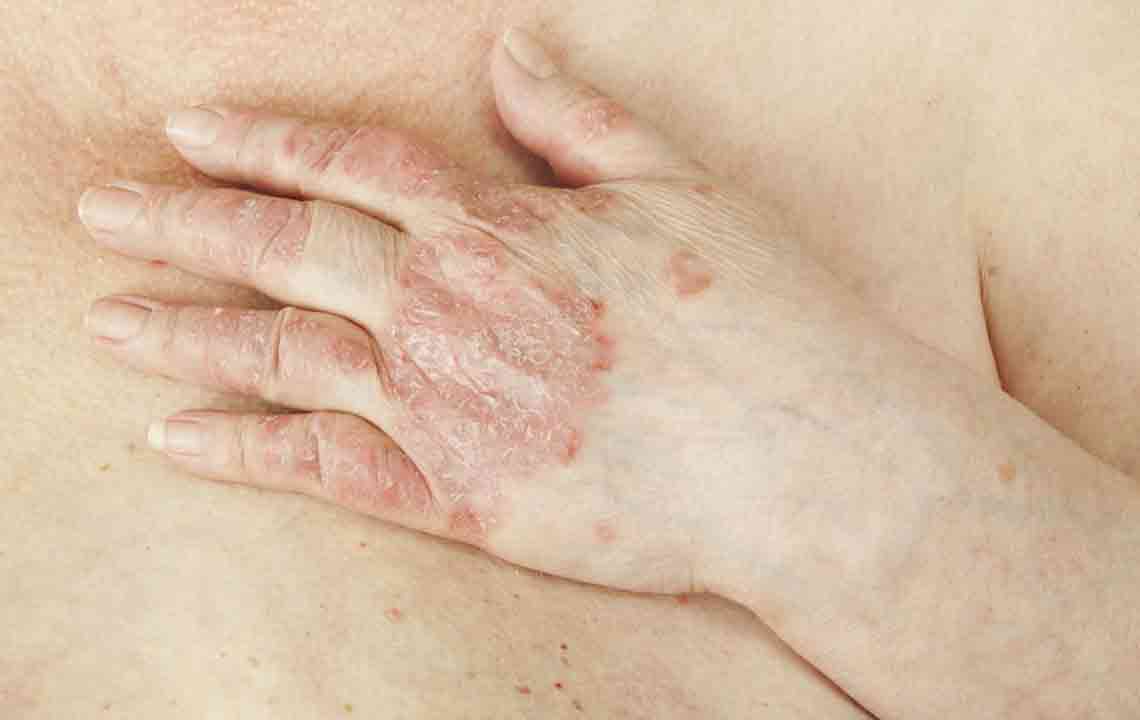All the Information on Psoriasis You Need to Know
The more it itches, the more we tend to scratch to get relief. However, in the end, it results in a downside with a worsened skin condition. If you’ve had persistent itching, then it can be a skin disease. Psoriasis is one type of skin disease in which you experience constant itching and redness. If you think that your skin is constantly irritated and are afraid of being infected by a disease, then you must try and get all the psoriasis information you need.
What is psoriasis?
Psoriasis is one of the most common skin disorders faced by everyone in the world today.

Types of psoriasis
Information on the types of psoriasis is as shown below.
Guttate psoriasis
Guttate psoriasis often occurs in children or adolescents (below the age of 30).
Inverse psoriasis
Inverse psoriasis is quite similar to guttate psoriasis. It causes shiny red spots on skin folds, groin areas, genitals, buttocks, and under the breasts. Inverse psoriasis is also called flexural psoriasis, and it is caused due to an abnormality in your immune system or sweating.
Erythrodermic psoriasis
If you’re affected by erythrodermic psoriasis, get immediate treatment as it can be fatal. The flaming red plaques identify erythrodermic psoriasis on the skin, which is a result of unstable psoriasis. Severe sunburn, infection, and other medications can trigger this kind of psoriasis.
Symptoms of psoriasis
There is a wide range of factors that cause psoriasis. Here is some information regarding the major factors.
- Streptococcal throat, which is an infection caused by Streptococcus that affects the throat with an uncomfortable feeling that leads to inflammation and pain. It sets off the immune system in your body, leading to rapid cell division on the skin
- Red patches on the skin that triggers mild or severe itching
- Patches of silver-white scales, sometimes filled with pus
- Dry skin that cracks and bleeds over a period
- Swollen joints and body pain
- Abnormality in your immune system
Identification of psoriasis
Physical examination
Psoriasis displays symptoms that are visibly different compared to other skin diseases that allow the doctors to easily diagnose it. Make sure that you explain all the symptoms to your doctor and mention whether your family has a history of psoriasis.
Biopsy
If the doctors aren’t entirely sure of the disease with physical examination, they take a sample of your skin for a proper diagnosis. This method of diagnosing is called a biopsy. The doctors give you an injection that numbs your skin to painlessly take a sample. The skin will then be examined under a microscope to determine if it has psoriasis.
Remedial information for psoriasis treatment
- It is necessary that you scratch as little as possible. To lessen the severity of inflammation and itching, you can apply ointments or moisturizers that soothe your skin so that you do not tend to scratch
- Bathe with salt water and keep exposure to sunlight minimal
- Coal tar is one of the most effective medicines against psoriasis. Coal tar is available in the form of shampoos, bath solutions, and creams, and it helps reduce the flakes on your skin
- Eat foods that keep your heart healthy. Avoid fatty foods and increase your protein intake with walnuts, flaxseeds, and soybeans
- Red meat, processed foods, and dairy products can increase inflammation. Avoid these foods as much as possible to get relief.
- Evidence suggests that alcohol worsens the conditions of psoriasis. Although it isn’t entirely clear as to why this occurs, it is best to avoid alcohol until you recover from psoriasis
- Bathe with warm water for irritation-free skin. Apply a moisturizer soon after your shower for greater benefits
- Stress is another major factor that causes psoriasis. Try and relax with meditation or yoga to help keep your psoriasis under control.
- Turmeric, popularly known as a natural antiseptic, helps keep several diseases at bay. Include turmeric in your diet to help reduce the symptoms of psoriasis.
Even though you have all this psoriasis information, it is best to avoid self-medication. If you feel that you’re experiencing one or more of the symptoms mentioned above, consult a doctor to receive a professional treatment against psoriasis.

